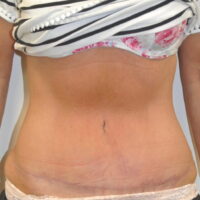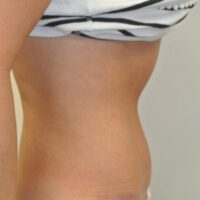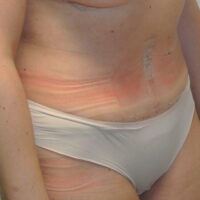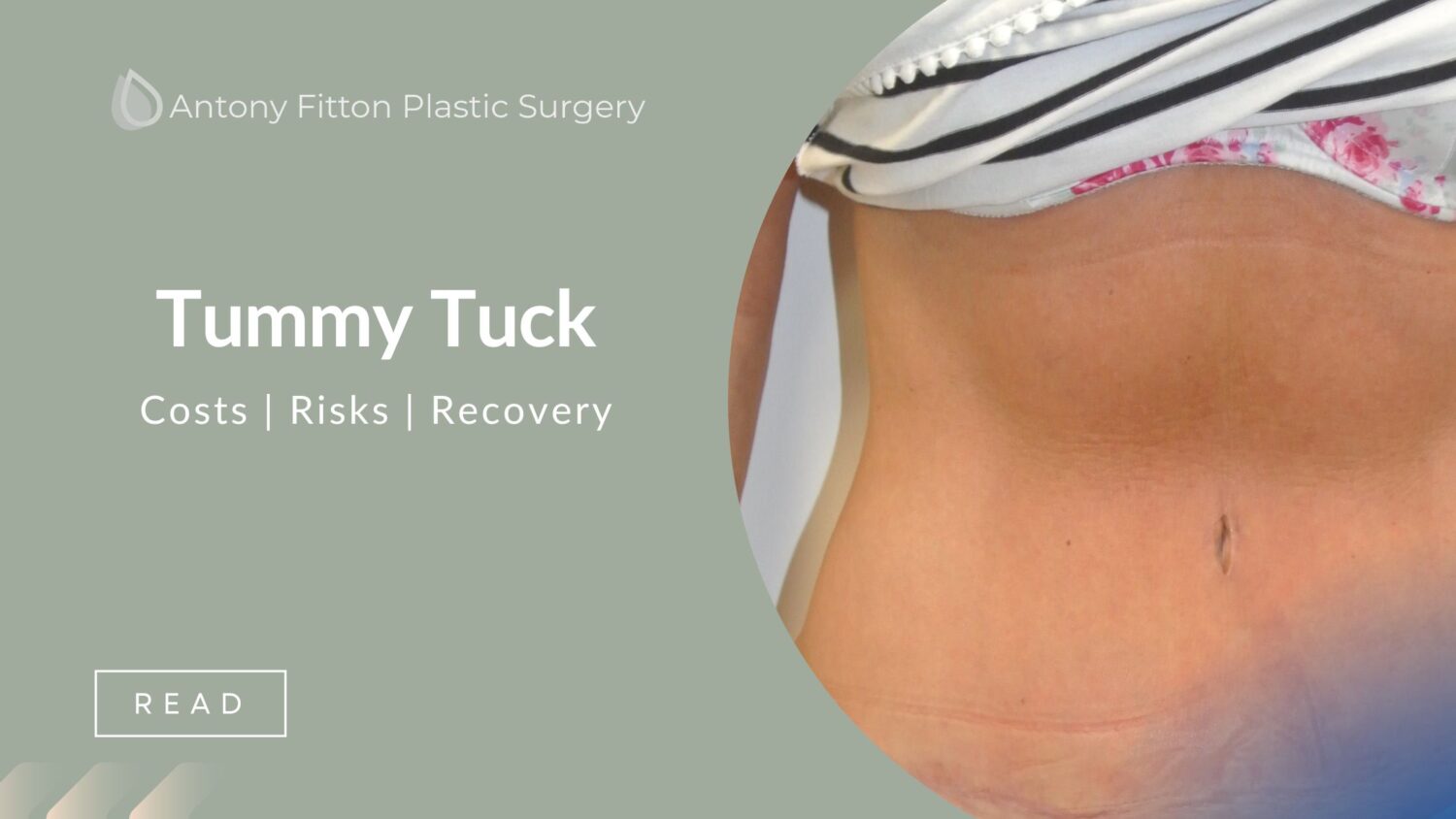
Tummy Tuck | Cost | Risks | Recovery
The tummy is a part of the body that is easily subject to many imperfections and animosity.
Pregnancies, sudden weight loss or gains, and a decrease of muscle tone, can cause dreaded skin excess, fat accumulation and the appearance of unsightly stretch marks.
Keeping a toned tummy is the desire of many women and in many cases neither nutrition nor physical activity are enough to change the misery you have with your middle.
Luckily, we have a solution, called abdominoplasty, a surgery that gives a new tone to the abdomen and that brings back smoothness to your silhouette.
Patients undergo a tummy tuck to take away extra skin and fat, or get a flatter tummy, often after pregnancy or gaining and losing weight. It can help rejoin the muscles of the abdominal wall if they have been pulled apart in the middle.
The best outcome of this operation is obtained in those patients who have achieve all their weight loss. It’s not a quick fix for losing weight as the procedure is usually only recommended for people with a healthy body mass index (BMI).
Why undergo a tummy tuck?
It can be frustratingly difficult for men and women to shed abdominal fat.
A saggy tummy area can make its appearance as a result of weight gain, pregnancy, or as part of the natural aging process. When a good diet and targeted exercises fail to banish this stubborn stomach fat, tummy tuck surgery is an effective way to achieve a smoother, more contoured tummy.
In the right circumstances the operation can improve quality of life and helps patient regain confidence.
Certified plastic surgeon Antony Fitton, has assisted numerous patients in improving the appearance of their midsection and redefining their waistline.
Tummy tuck surgery is an effective way to achieve a smoother, more contoured mid section.
How long does a tummy tuck take?
The operation can take between 2 and 5 hours. Most people need to stay in hospital for a couple of nights. You will probably be in some pain after you wake up from the general anaesthetic.
After a large incision, the body responds with a repair process by sending inflammatory molecules to the site of the damage. These molecules help the recovery process, but they can result in pain and unsightly bruising.
It is important to remember that pain and bruising are both critical parts of the recovery process and to be expected. You can reduce pain and bruising by taking pain killers, taking anti-inflammatories, and eating a healthy, balanced diet.
Liposuction may or may not be recommended at the same time.
How long is the recovery time for a tummy tuck?
An abdominoplasty will often require the use of drains and you will need to stay in hospital for one or two days after the surgery. When discharged we will provide you with an abdominal binder to wear and this will reduce the chances of you developing something known as a seroma.
The timeline for abdominoplasty recovery looks something like this:
- Sutures are dissolving
- Review of wound 10 – 14 days post operatively
- Support garment to be worn for 4 – 6 weeks post operatively
- Return to work 3 – 6 weeks post operatively
- Return to driving 2 – 3 weeks post operatively
- Return to exercise – 6 weeks post operatively
- Start to get an appreciation of end result 12 – 24 weeks post operatively
- Scars will continue to improve 12 – 18 months post operatively
How much does tummy tuck surgery cost?
The investment for a Tummy Tuck starts at £6,848. This includes your surgeon, the procedure and aftercare.
Actual costs vary depending on your procedure and the provider hospital you choose to have your surgery with.6
When can I exercise after a tummy tuck?
Following abdominoplasty surgery, even the simplest of tasks may place excessive strain on the healing tissues of the abdomen and disrupt the recovery process.
It is essential that any activities involving overreaching, bending or twisting are avoided for at least 4 weeks. At around 6-10 weeks after your tummy tuck procedure, you should be able to ease into your normal exercise routine
You can begin doing crunches, sit ups, and planks, as long as you progressively increase your repetitions. Mobility is essential following surgery, so walking short distances with support, even on the day of surgery is recommended.
For many patients, walking is a helpful way to maintain activity levels as much as possible.Any strenuous exercise like jogging, running, cycling or competitive sports must be avoided for between 4 and 6 weeks following surgery.
What are the the risks of a tummy tuck?
A tummy tuck is a major operation. Risks include infection, poor wound healing, numbness to the area, scarring, and bleeding. This makes it vital to seek out a properly qualified and experienced surgeon who can minimise risks and treat any complications.
All risks will be fully discussed prior to your consent. It’s important that you address all your questions directly with your plastic surgeon.
Summary
Like any other type of major surgery, a tummy tuck poses a risk of bleeding or infection. There’s also a risk of having a reaction to the anesthesia. Managing your expectations about plastic surgery is important regardless of which procedure you wish to have done.
Before you go ahead, be sure about your reasons for wanting a facelift. Bear in mind the cost, the risks, and the fact the results cannot be guaranteed.
It’s critical to have realistic expectations about plastic surgery, and also to ensure you are on the same page as your surgeon
To find out more about having a treatment, book your no obligation consultation. You will meet with Antony Fitton and receive expert advice tailored to your needs.
Please call us on 07494 250277 or book your consultation using our online form.tummy tuck
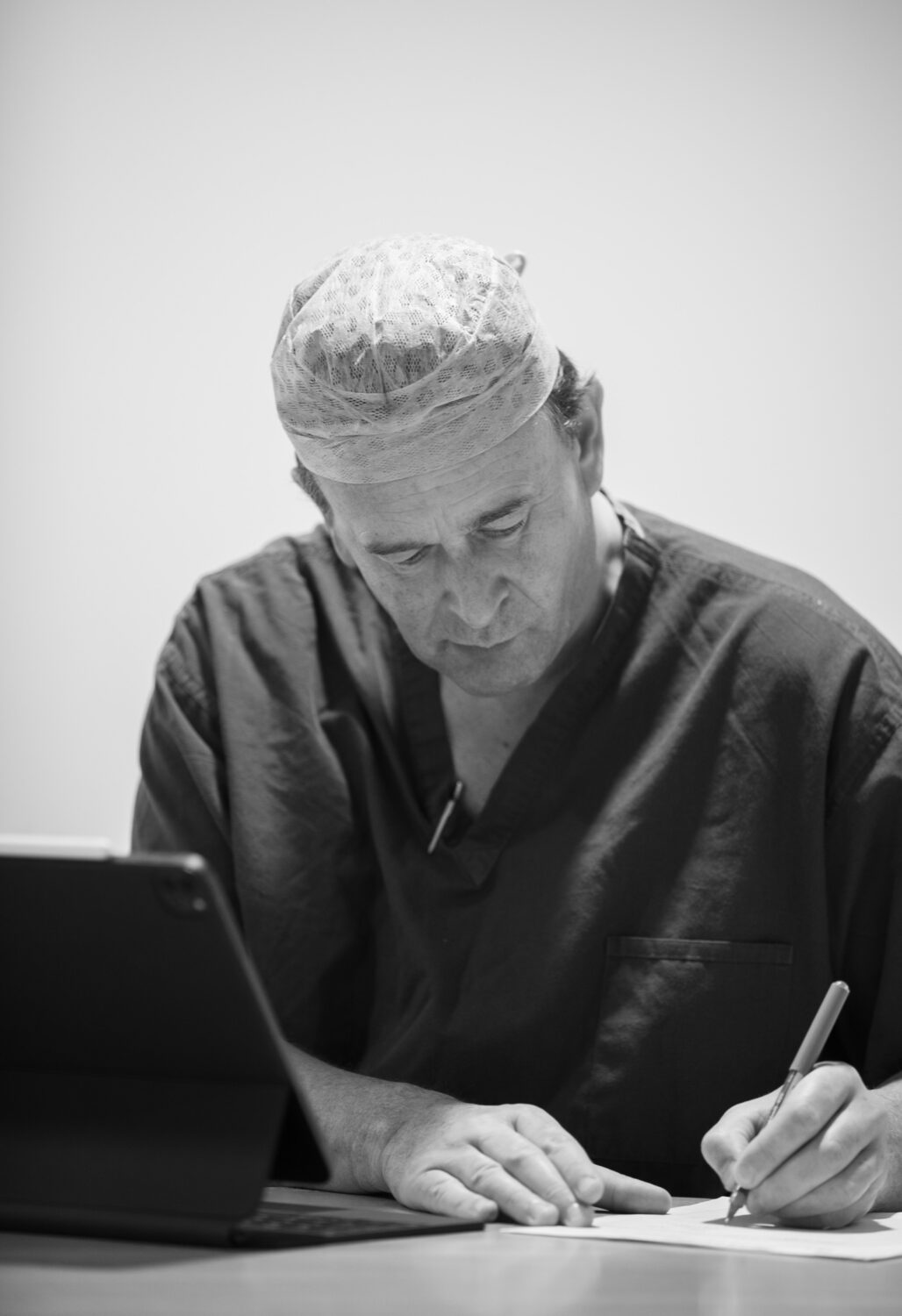
About your Plastic Surgeon: Mr Antony Fitton
MB, BS(hons)., MD., FRCS(eng)., FRCS(plast).
Mr Antony R Fitton qualified at the Royal London Hospital in 1989 with distinction in Surgery. He holds a MB, BS(hons)., MD., FRCS(eng). and FRCS(plast). (Fellowship at the Royal College of Surgeons).
He is a member of BAPRAS (British Association for Plastic, Reconstructive and Aesthetic Surgeons), BAAPS (British Association for Aesthetic Plastic Surgeons), BSSH (British Society for Surgery of the Hand).
Mr Fitton has received the Paton & Masser Award and the CM Matthews Award from the Royal College of Surgeons of England or his research in nerve injury.
Mr Fitton is licensed as Plastic and Reconstructive Surgeon by the GMC.
Life-changing result
"I just wanted to thank you (and your team) for the life-changing result of my top surgery. This will provide me with the freedom that I’m excited to enjoy, including being able to go swimming and actually staying cool in summer! All jokes aside, you have helped to mark a new chapter in my life, for which I am incredibly grateful… ALL the best."
Our appearance has an impact on how others perceive us. We are experts in creating an improved version of you. Click on a procedure below for more information.
Body surgery (or contouring) can involve all or one of the following, with prime focus on areas such as the buttocks, tummy, thighs, arms, and breasts. Click on the links below for more information.
There are several different types of hand surgery but all aim to restore functionality while making the hand look as normal as possible. Click on the links below for more information.

Should I Lose Weight Before a Tummy Tuck?
Discover if you should I lose weight before a tummy tuck and if it can enhance your surgery results
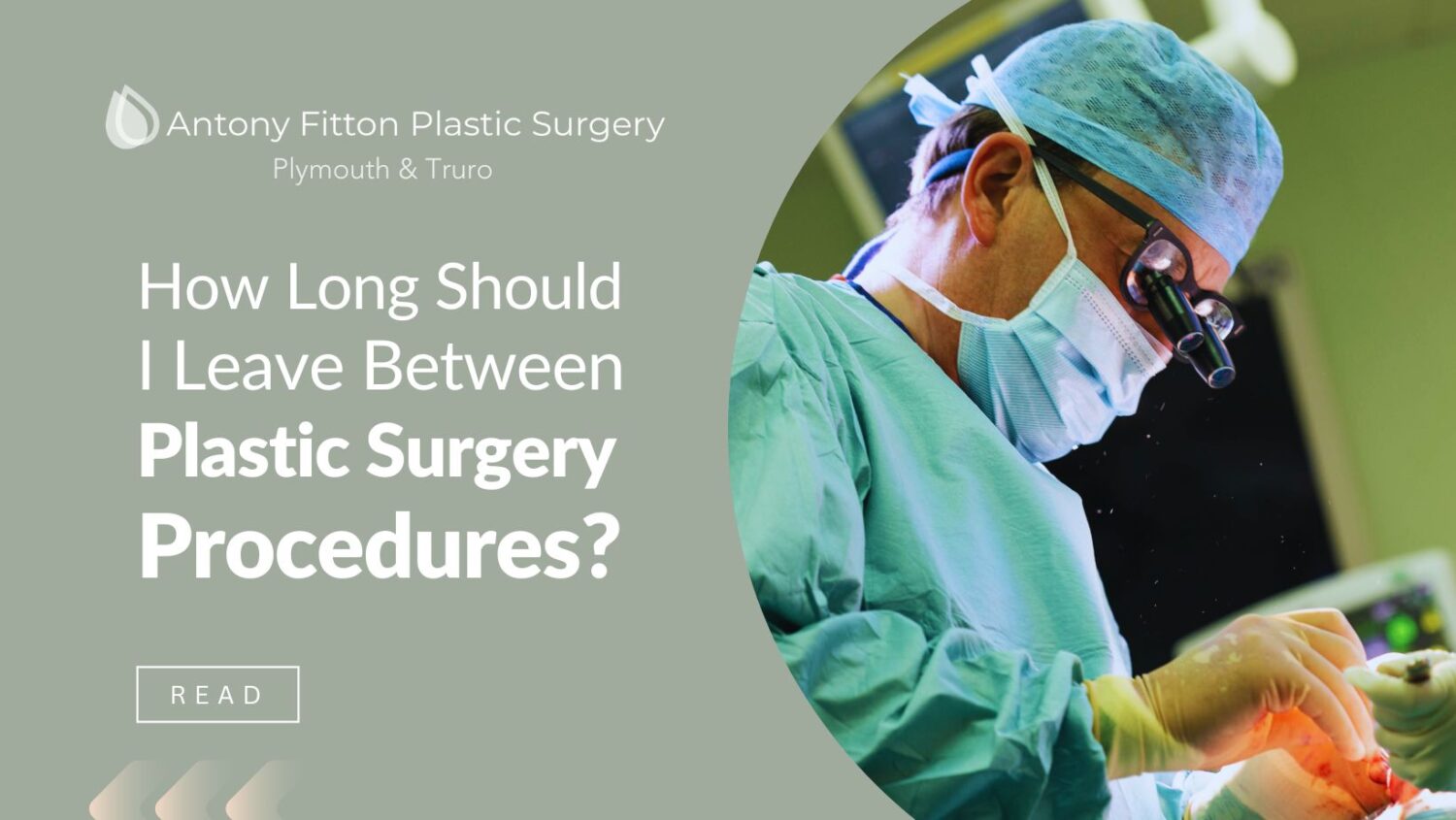
How Long Should I Leave Between Plastic Surgery Procedures?
Discover how long you should leave between plastic surgery procedures for optimal recovery and effec
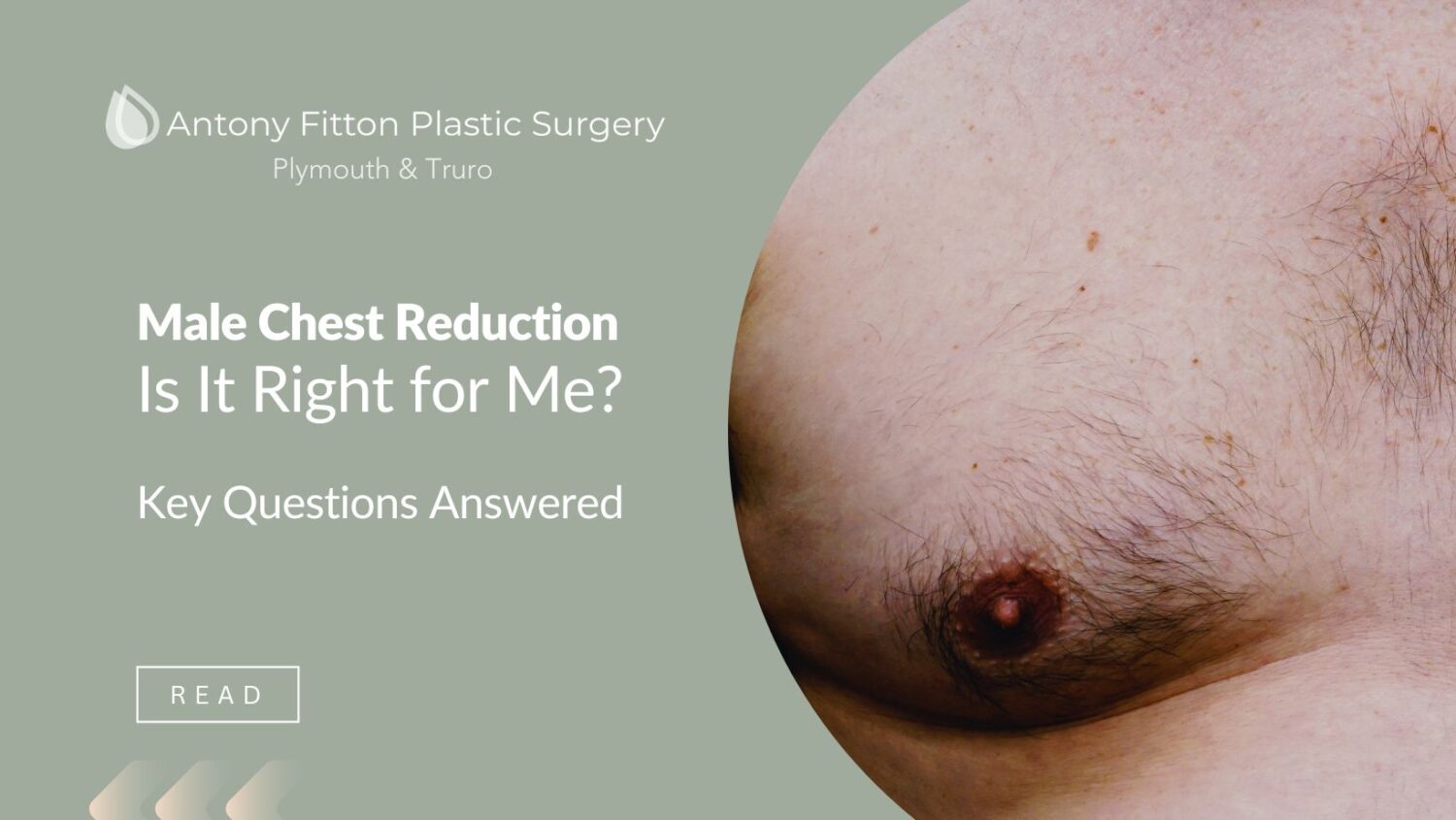
Is Male Chest Reduction Right for Me? Key Questions Answered
Is Male Chest Reduction Right for You? This blog answers crucial questions on gynecomastia surgery s




